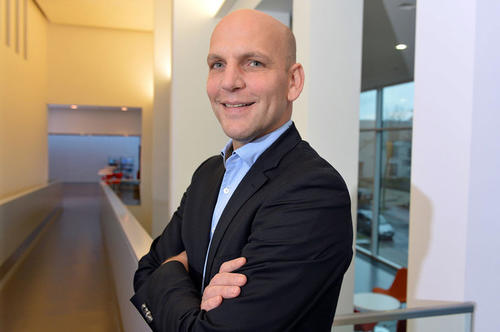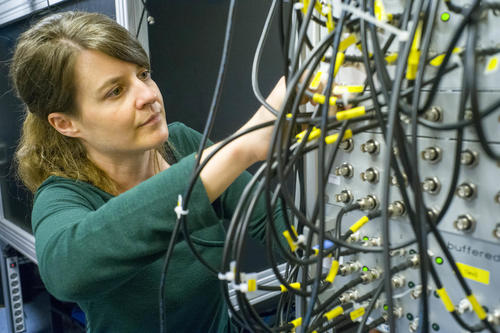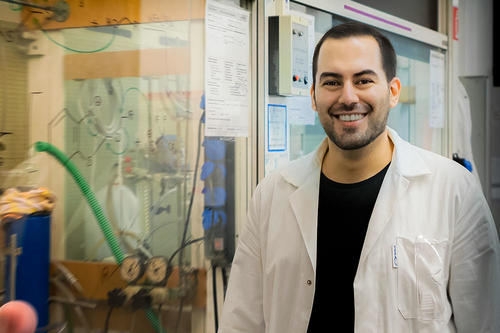Research
Dahlem’s Own Nobel Prize Laureate ++ Klung Wilhelmy Science Award ++ Committed to the Future
Jan 24, 2022
Catalysis researcher Benjamin List is Director at the Max-Planck-Institut für Kohlenforschung in Mülheim an der Ruhr, Germany
Image Credit: David Ausserhofer / MPG
Dahlem’s Own Nobel Prize Laureate
Dr. Benjamin List, a professor and director at the Max Planck Institute for Coal Research, received the 2021 Nobel Prize in Chemistry together with Dr. David MacMillan from Princeton University. The two scientists were honored for their work on asymmetric organocatalysis. They discovered that organic molecules also mediate chemical reactions. Previously, scientists had assumed that only enzymes and metals, often including toxic heavy metals or expensive and rare precious metals, could accelerate chemical reactions and steer them in a desired direction.
List was born in Frankfurt am Main in 1968. He comes from a long line of natural scientists: His great-great-grandfather was the chemist Dr. Jacob Volhard, and his aunt is Dr. Christiane Nüsslein-Volhard, herself a Max Planck Director and Nobel laureate in physiology and medicine. List started his career at Freie Universität in the chemistry diploma program.
Klung Wilhelmy Science Award
Timing control of an experiment. Various electrical signals are sent to individual devices. They ensure that all steps are executed with the highest accuracy at the right time.
Image Credit: Kraemer/Krupp Foundation
Dr. Monika Aidelsburger, professor of physics at Ludwig-Maximilians-Universität in Munich, was awarded the prestigious Klung Wilhelmy Science Award on November 18, 2021, at a public ceremony in the Henry Ford Building of Freie Universität. Aidelsburger discussed her research during the award ceremony in a lecture titled “Quantum Simulations with Ultracold Atoms – Topology Ultracold.” The laudatory speech was given by Dr. Immanuel Bloch, professor of physics at Ludwig-Maximilians-Universität and scientific director at the Max Planck Institute for Quantum Optics in Garching. The prize winner’s basic research makes it possible to better understand previously puzzling physical phenomena and chemical reactions. Her findings could also help to develop new materials or optimize quantum computers in the future. The prize is endowed with 50,000 euros and is considered one of the most prestigious awards for young scientists in Germany.
Committed to the Future
Armin Ariamajd says his mother was his greatest supporter and “a great source of inspiration.” Armin is picutred here in Prof. Matthew Hopkinson’s laboratory at Freie Universität.
Image Credit: Michael Jakob
On December 1, 2021, Armin Ariamajd was honored by the German Academic Exchange Service (DAAD) for his outstanding achievements and his commitment to intercultural work and helping society. The award winner, who is studying chemistry and computational science in two master’s programs at Freie Universität, grew up in the Iranian capital of Tehran. His mother, a university lecturer in German language and literature at Tehran University, introduced him to German culture at an early age. After graduating from high school in Tehran, Ariamajd began to study German at the Goethe Institute. His newly acquired language skills enabled him to move to Berlin in 2012, where he attended the Studienkolleg for international students at Freie Universität and began a bachelor’s degree in chemistry. Since his start in Germany was not easy, he now helps others to settle into life here. For example, he has served as a mentor in Freie Universität’s “Buddy Program” for refugees. He is planning to donate the prize money, preferably to a “young organization that supports young people with less privileged backgrounds on their way to higher education.”



